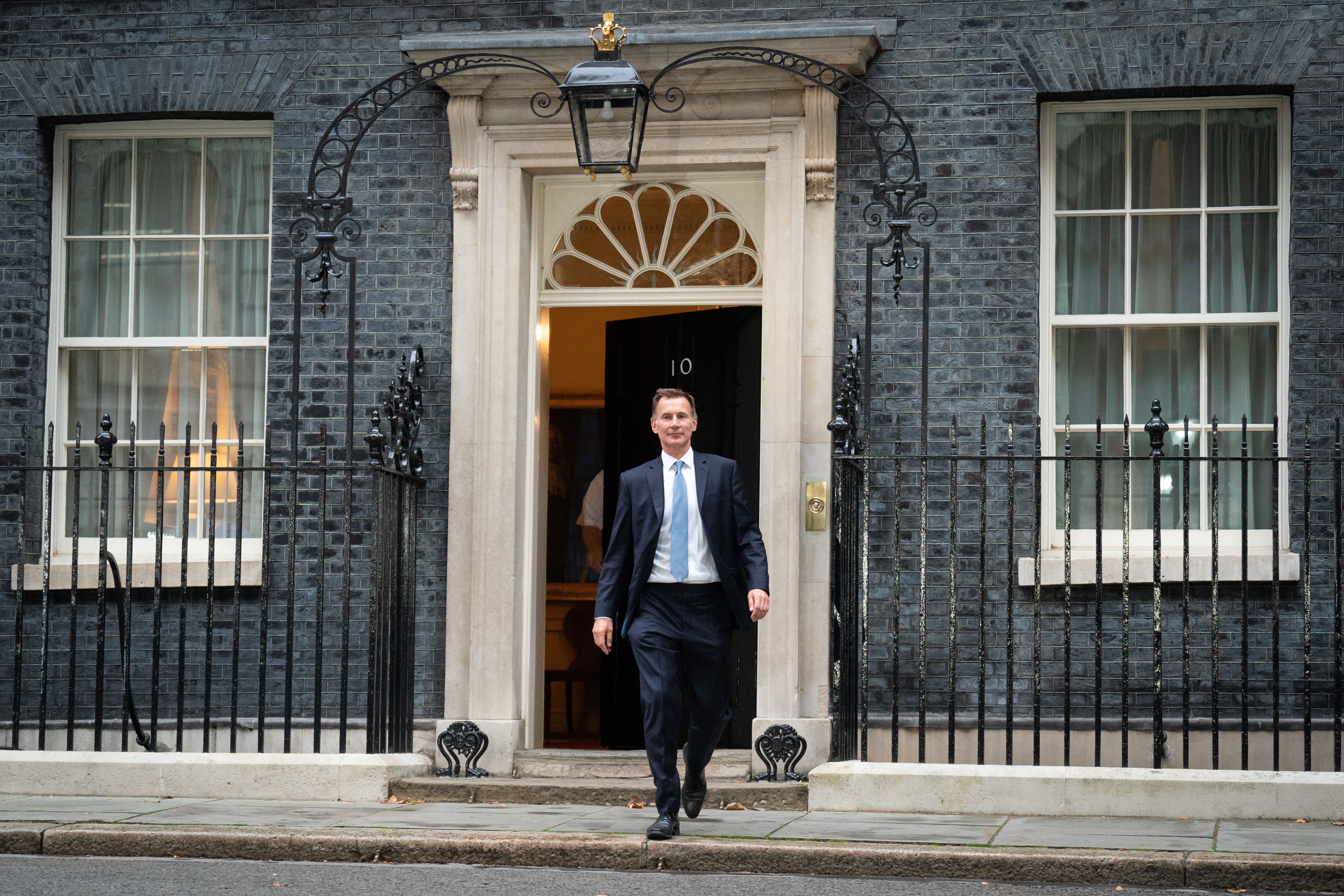I’ve never seen anything like this in 20 years of reporting on the economy
Jeremy Hunt’s announcement of the end of Trussonomics pleased the markets – but we will be feeling the effects of that disastrous mini-Budget for some time, writes James Moore


In ripping up Trussonomics, by reversing the vast majority of its unfunded tax cuts – and even promising extensive changes to the prime minister’s energy support package in six months – Jeremy Hunt has waved the white flag of surrender.
The markets have won, just as they did the last time a Tory government tried to take them on, which resulted in the UK’s ejection from the European Exchange Rate Mechanism in 1992. That was followed by the Conservative Party’s ejection from Downing Street five years later.
But the devastation wrought on the British economy in recent weeks far eclipses even that miserable episode. Having reported on business and economics for more than two decades, I am still pinching myself. We have never seen anything like it. Is it even real? Is it actually happening? Or am I still in the coma I was left in after being run over by a cement truck (true story)? Nope. This is no fever dream. That truck has been driven over the economy this time.
The ruthlessness of the markets – dare I say orthodoxy – frustrates the left as well as the right. And clearly they should not be the sole arbiters of any government’s policy, whatever its political complexion. But push too far, embark on an ideological crusade that ignores almost every expert worth a damn, all while vomiting forth a torrent of numbers that don’t add up, and the markets will bite back.
Shouting at them will get you precisely nowhere. They move as they will. The proof in that particular pudding is very much with us.
The hard fact is that the UK is reliant upon the goodwill of international investors, as this episode has made brutally clear. Until that changes (and it won’t change soon) politicians are going to have to make sure their numbers add up.
Labour appears to have learnt that lesson. It is why it has been careful to stress the “fully funded” nature of the limited number of policy announcements it has made. Even if there has been some debate over what “fully funded” means in practice, the markets might actually be minded to welcome the arrival of Rachel Reeves into No 11. A Bank of England economist? Reassuringly... orthodox. Especially when compared to what the country has endured.
Trussonomics is dead. Hunt in a strictly orthodox suit; that of soberly-suited bank manager, or maybe a school headmaster, in making that clear.
As a result, in addition to the rise in corporation tax which he restored last week, there will now be no cut to the basic rate of tax for the foreseeable future, no VAT-free shopping for overseas visitors, no more freeze on alcohol duty or dividend tax cut.
The review of the energy support package was his most eye-catching announcement. But it is sensible. The current plan delivers the greatest benefit to wealthy owners of large homes and does little to incentivise energy efficiency. Even Liz Truss’s beloved Institute of Economic Affairs carped at it, describing it as “middle-class welfare”.
But it is also worth remembering that the markets took the plan in their stride before the now ex-chancellor, Kwasi Kwarteng, stood up and told the world that he and his boss actually believed in, and were fatally committed to, the economic fantasies Truss spun to win the Tory party leadership.
Hunt has put £32bn back on the board. Only the abandonment of the national insurance rise, put in place by Boris Johnson and Rishi Sunak and called the health and social care levy, along with the cuts to stamp duty on house sales, remain of Kwarteng’s mini-Budget.
We will be feeling the effects of that mini-Budget for some time. But, the markets at least ticked up in response to Hunt’s statement, which will please him and the grown-ups – how many of them are there really? – on the Tory benches. The pound gained some ground against the dollar and the euro and other major currencies. Gilt yields fell, crucially cutting the government’s borrowing bill, even with the Bank of England having withdrawn its support from the market.
But the UK is going to be paying what I'm calling an “idiot premium” for a while. Hunt managed to restore some confidence. But Truss is still in office, if not in power. Quite how she can stay there is hard to contemplate.
A degree of instability will remain while she is in Downing Street and while the Tory Party sorts itself out, if it even can. Meanwhile, energy bills will mount.
This announcement represents no more than a down payment. Hunt has also warned of spending cuts. He needs them to plug the rest of the £60bn hole the Institute for Fiscal Studies identified in the public finances. The Office for Budgetary Responsibility is still to opine, although really, we already more or less know what it will say.
Quite where these cuts are going to come from is anyone’s guess. The low-hanging fruit was picked long ago. The ice from the last round of austerity hasn’t even melted.
If the grown-ups are back in charge, some will ask for how long? Has this episode finally killed off part of the Conservative Party’s deluded economic fantasies? These are open questions.
Britain desperately needs an extended period of stability. Businesses, the agents of the growth Truss says she wants, are crying out for it. We are some way from getting that.






Join our commenting forum
Join thought-provoking conversations, follow other Independent readers and see their replies
Comments